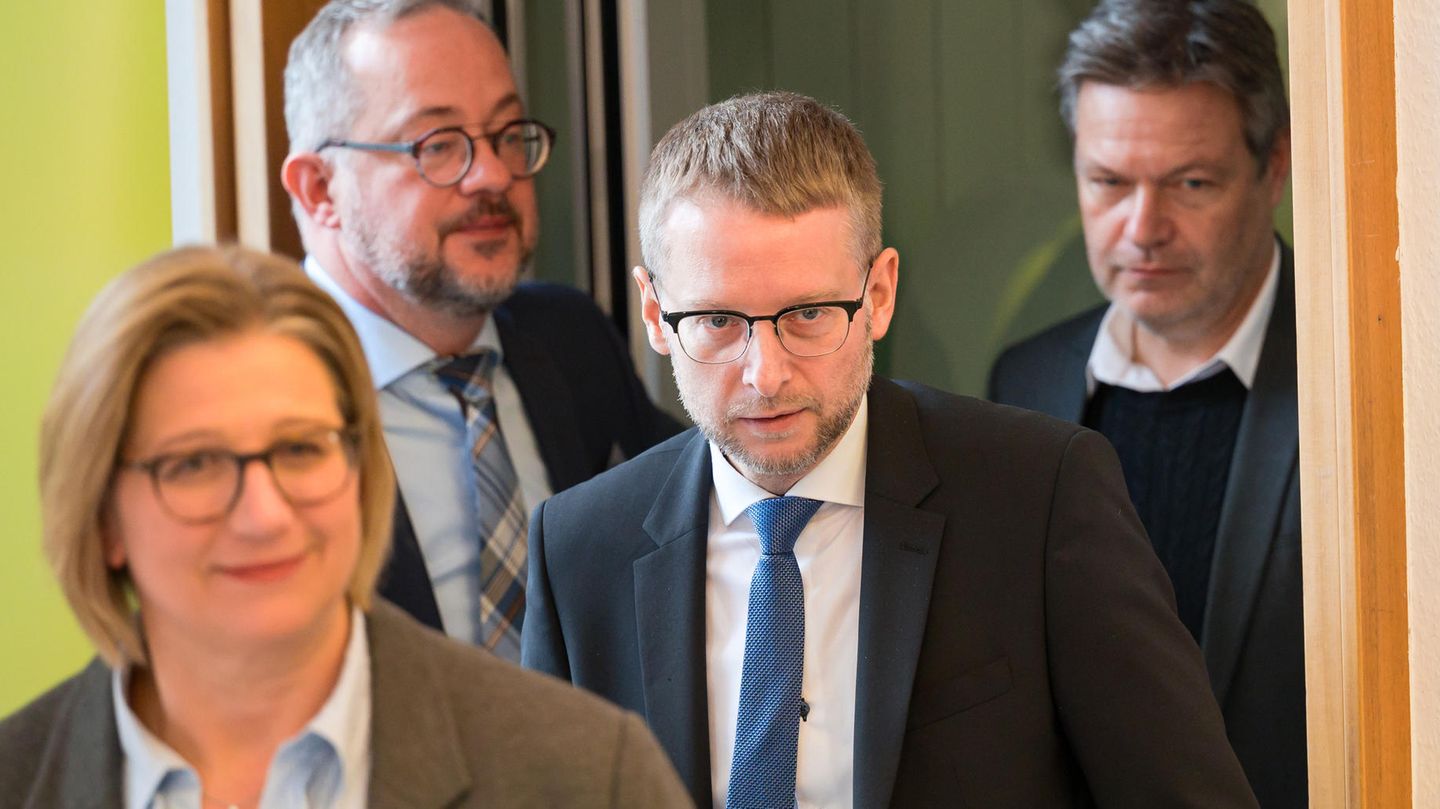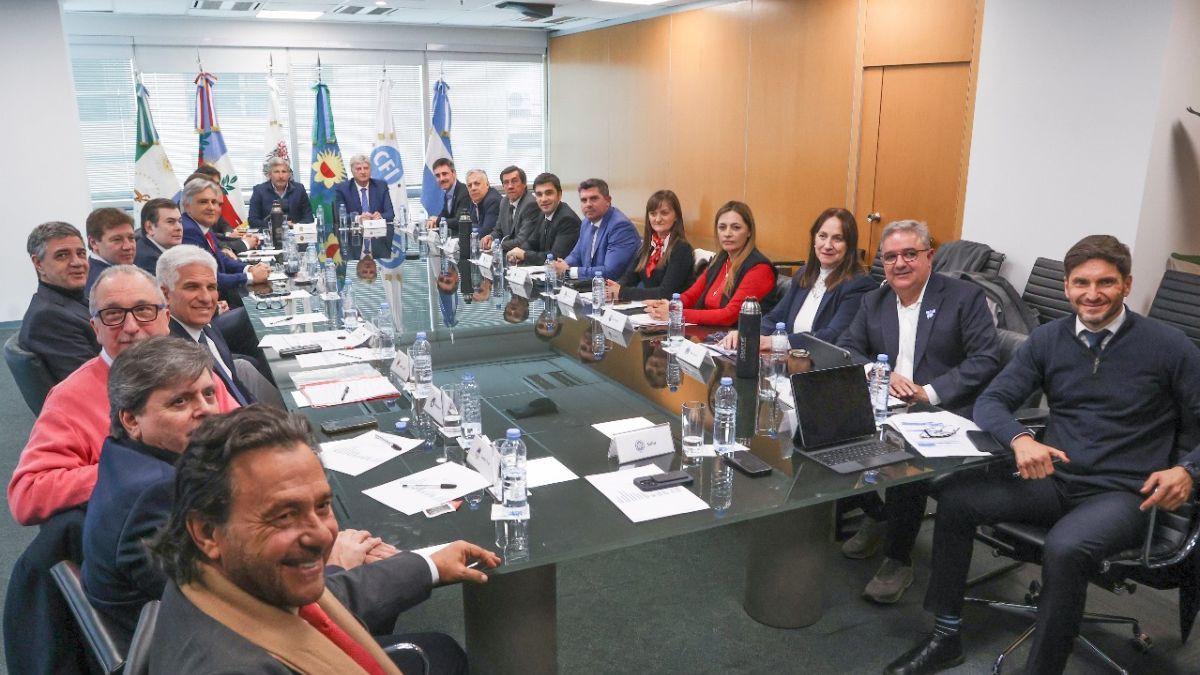interview
The “National Steel Summit” is meeting in Duisburg. Also present: Stefan Rauber, head of Dillinger Hütte and Saarstahl. He is worried about thousands of jobs despite billions in subsidies.

This is original content from the Capital brand. This article will be available for ten days on stern.de. After that, you will find it exclusively on capital.de. Capital, like the star to RTL Germany.
One of the most modern and cleanest steelworks in the world is to be built in Saarland. From 2027, they want to produce green steel there, 3.5 million tons after the complete conversion, and thus emit almost 5 million tons less CO2 into the air. SHS Holding, the fourth largest steel group in Germany, received a promise of 2.6 billion euros from the state for the transformation at the beginning of the year. They want to invest around a billion themselves. This was preceded by a tough struggle and anxious waiting – after the Federal Constitutional Court overturned the funding from the Climate and Transformation Fund.
Mr Rauber, in January you received a funding commitment of 2.6 billion euros for the restructuring of the Saarland steel industry. How have you progressed?
Work is underway, and our factory premises in Dillingen and Völklingen are being excavated and leveled. The new plants will be higher than the blast furnaces and we need a robust foundation for this. In essence, we are building almost a new steelworks that runs on hydrogen instead of coal and coke. Electric furnaces and a direct reduction plant will replace the blast furnaces. In October, we will announce who will be awarded the contract to build these large plants. By then, we will have spent around two thirds of our funding. But it will still be a few years before we start producing green steel.
You still have problems with the federal government. Where does the frustration come from?
The federal government is not doing its job, they are letting our industry down here. It is not enough to spend billions in state subsidies on our steelworks, Saarstahl and Dillinger Hütte. We need framework conditions that make us internationally competitive. Because first of all, this climate-friendly production here will be more expensive than before, we will lose competitiveness and risk thousands of jobs. That is why the energy-intensive industry as a whole needs a low and internationally competitive industrial electricity price. We planned for this and Olaf Scholz promised us this. But now the Chancellor is doing nothing. The issue is politically dead at the moment. It urgently needs to be put back on the agenda.
Stefan Rauber is Chairman of the Management Board at SHS and head of Dillinger Hütte and Saarstahl. The 46-year-old was head of department in the Saarland Ministry of Economic Affairs and managing director of Montan-Stiftung-Saar for four years before moving to the top of SHS – Stahl-Holding-Saar.
Why is this so important?
If we switch on the two electric furnaces in our plants, electricity consumption will double in one fell swoop. Not for the company, but for the entire Saarland. Green steel requires a lot of energy – and the costs must be at an internationally competitive level. In addition, we need thousands of tons of regional green hydrogen in the first phase, as stipulated in the funding guidelines. The proportion will then gradually be increased to 120,000 tons in the final phase. But we need the appropriate infrastructure for this. This is where we have locational disadvantages. When it comes to green hydrogen, Saarland will only be connected to the European core network, the European Hydrogen Backbone, at a late stage.
Where do you get the regional hydrogen in the meantime?
We will get it via France, but the connection to the pipeline is still missing there too. And now a citizens’ initiative is being formed against the route. We could also run the new furnaces with gas, but hydrogen is what is politically desired. But there is simply a general lack of reliability in economic policy, the feeling that things are moving forward.
Don’t you see the funding commitment as an opportunity?
From a politician’s point of view, the restructuring is a great story: ‘We are all going green and innovative’. But in reality, the funding commitment for the steelworks here initially means a tough austerity program: we are saving here like never before in the more than 300-year history of the Saarland steel industry. The running costs must be reduced, we will cut jobs, optimize processes, do everything we can to remain competitive despite the more expensive green steel.
You have two subsidiaries in France, Saarstahl Rail and Saarstahl Ascoval, that produce decarbonized rails made of green steel. Until recently, you had hoped that Deutsche Bahn would buy your green rails. Why hasn’t that come to fruition?
The green rails are too expensive for DB. It has to buy its rails where they are cheapest, that’s what the public selection process demands. Environmental aspects play no role here. For me, this is a slapstick number. I feel like I’ve spoken to every relevant politician in Berlin. Nobody has helped. I find it incomprehensible. We are a German company that produces several million tons of steel in Germany and is now implementing a politically desired decarbonization, and is desperately waiting for two or three lead markets to emerge. And the only lead market that politicians could actually shape completely is the one that belongs 100 percent to the federal government, the rail or rail market. And that is the one where nothing is happening. For me, it’s like this: the ball is on the penalty spot and the goalkeeper isn’t there. But unfortunately, nobody is shooting.
Source: Stern




